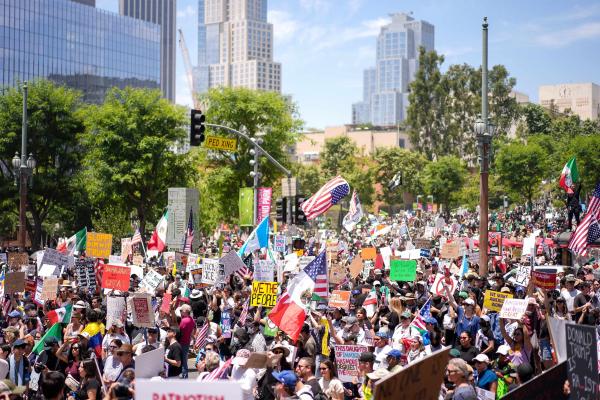During the first week of June, aggressive Immigration and Customs Enforcement raids in and around Los Angeles sparked protests. To quell these protests, President Donald Trump deployed the National Guard and the Marines to the city. The federal escalation seems intentionally frightening; editor at large and founder of The 19th Errin Haines described the situation as a “public and excessive show of force …[as] a means of reinforcing control.” As the situation continues, we can anticipate further conflicts over control of the military and other shocking acts like the aggressive removal and detainment of Sen. Alex Padilla (D-Calif.), who was removed from Homeland Security Secretary Kristi Noem’s press conference on June 12 while peacefully attempting to ask questions.
I live in LA, and I think what is happening in our city is also happening across the country.
Read the Full Article

